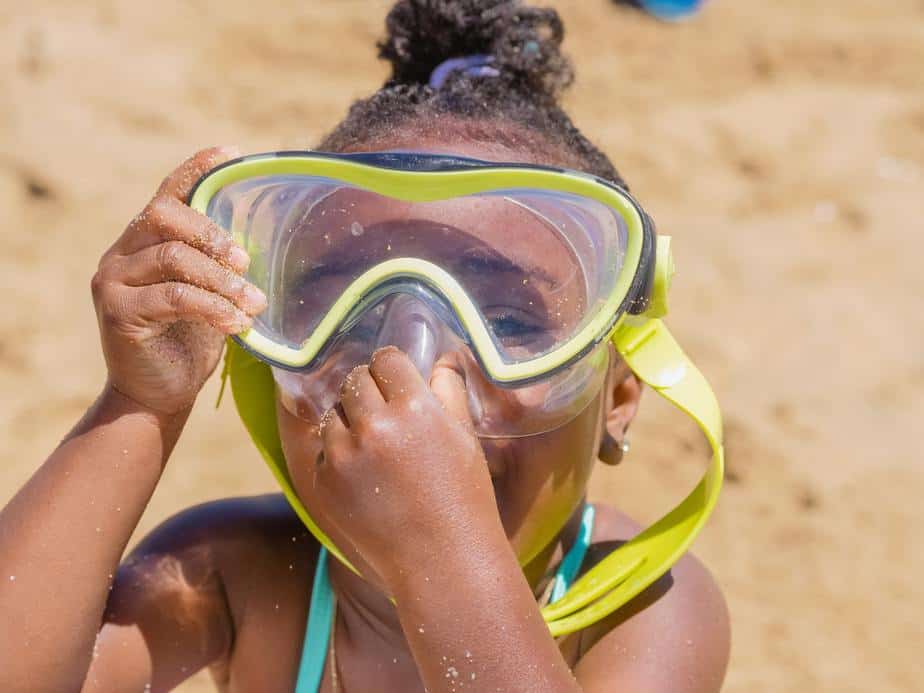Scuba diving is an amazing experience that many tourists want to try on their vacation but aren’t sure how to get started. There are some common questions they’ll ask like: how good of a swimmer do they need to be, how do they learn about all of the scuba equipment and how to use them, are they too old to dive, how much does it cost, is scuba diving dangerous and so on. These are all valid concerns, and you might be surprised at how accessible scuba diving is despite being an extreme sport.
There aren’t many limitations on scuba diving. Even kids 8 years of age and older can do it as well as the physically disabled. As long as a prospective diver has the physical ability to maneuver underwater with their scuba kit on, the emotional maturity to follow the rules and work as a group, and has been medically cleared by a doctor for diving, then they are free to scuba dive. Other limitations, such as being out of shape, not being a strong swimmer, and not knowing dive theory can be fixed through hard work. Thus, scuba diving is a non-discriminatory activity that is accessible to almost anyone.
In this article, we’ll discuss the situations where you won’t be allowed to scuba dive. We’ll also go over cases where you can still scuba dive with some additional effort. Of course, we are not the ultimate authority on who can and can’t scuba dive; that depends on your doctor and the scuba instructor, however we can give you an idea of what’s within the realm of possibility. Let’s dive in.
Who can scuba dive?
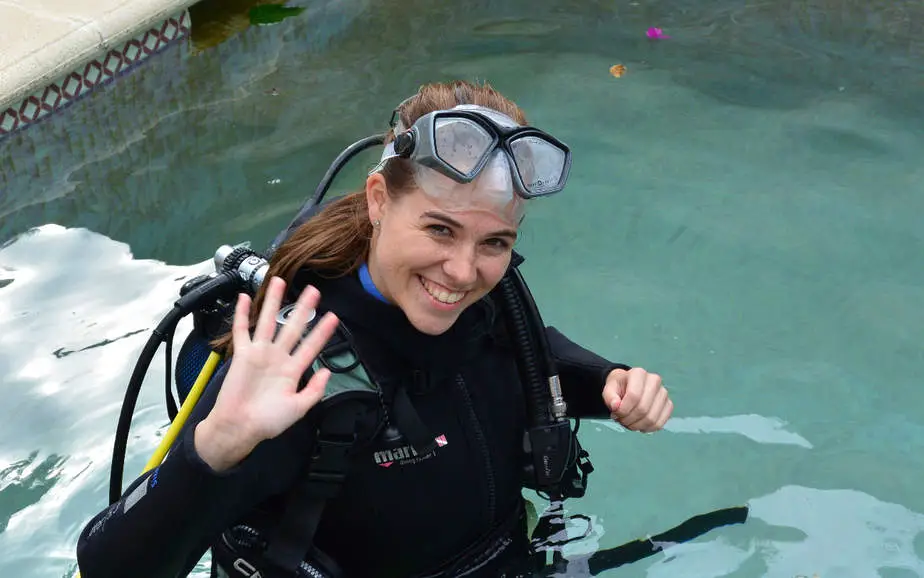
If you’ve somehow found your way to this article, chances are you’re wondering if scuba diving is an exclusive activity that only the young or the fitness buffs can do. However, this couldn’t be further from the truth.
Barring a medical condition, almost anyone can become a certified scuba diver if they are willing to put in the time, effort, and money needed for scuba training. While scuba diving is considered an extreme sport, there are also times when it can be incredibly relaxed and soothing.
The “extreme” part of scuba diving comes from the fact that there are many types of diving, some more extreme than others (looking at you, cave diving and ice diving). However, many types of diving are effectively the most unique and interesting sightseeing trips you’ll ever be on (e.g., muck diving, fluorescent diving, blackwater diving).
As long as we are staying within the realm of recreational scuba diving (and far away from technical diving), then it is accessible to many more people. With that said, the biggest limiting factor for someone is if they have some kind of medical condition that makes it unsafe for them to dive. You won’t know for sure if it’s safe for you until you get a consultation with your doctor.
Other than that, there is no limitation on age or body weight. As scuba diving gear has advanced, now even the physically and mentally disabled can safely scuba dive with some assistance.
So as long as you’re physically fit enough to swim and carry your scuba gear, there’s no reason why you can’t dive. If your kids want to dive, they need to be at least 10 years old before they can get certified.
Who can’t scuba dive?
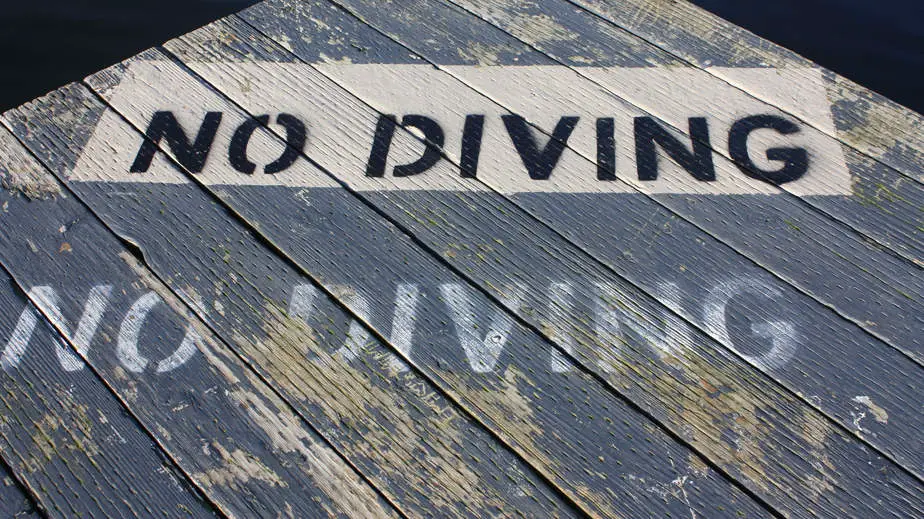
Other than people who have not been medically cleared by their doctor, then there isn’t much reason why you can’t scuba dive other than you don’t want to. Almost any obstacle in your way can probably be overcome if you really wanted to dive.
Whether it’s because you’re not confident in your swimming abilities, you aren’t sure if you’re physically fit enough, you have a fear of the depths, you currently don’t have the money for taking scuba courses, etc, these are all issues you can work on. However, if you have a condition such as asthma and your doctor tells you it’s too risky to dive, then that’s a different story.
With that said, scuba diving is not for everyone and that’s perfectly fine. Before you decide to invest time, effort, and money on a hobby you ultimately find boring, we recommend taking a one-day Discover Scuba Diving course to get your feet wet, literally, in order to have a better idea of if you even like diving or not.
Many people started diving because a friend or family member got them into it. Perhaps you were being a good sport, but if the reality is that you aren’t very passionate about diving, then eventually it’s going to be a chore for you to dive.
For example, learning about all of the scuba procedures and equipment, assembling and carrying gear, and the recurring fees associated with scuba diving can make you wonder if it’s worth it to scuba dive. If the activity isn’t enjoyable for you, we think it’s better to rip off the band-aid and explain to your friend, family member, or partner that scuba diving isn’t for you.
Can you scuba dive if you don’t know how to swim?
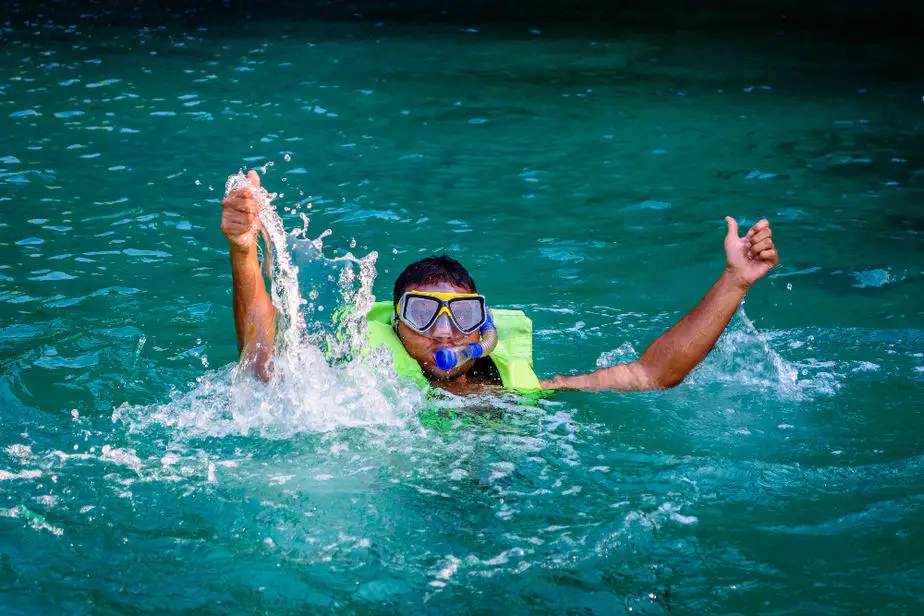
No, you can’t. One of the requirements for passing the entry-level dive course is to swim a distance of 200 m (656 ft) and tread water for 10 minutes without the help of a buoyancy aid. These are known as the “swim” test and the “float” test respectively. You do not need to be an Olympic athlete to accomplish this, however you do need some swimming competency and cardiovascular endurance to be successful.
Even if you think you can’t accomplish this test right now, there’s no reason why you couldn’t train for a few weeks and build up your stamina. Perhaps you can hire a swim coach to give you private lessons so you can learn the right techniques and build up your confidence.
Suppose you want to just try out scuba diving without first training for it or taking private lessons. Could someone be given a taster course? Indeed, in the section above we mentioned that there is a Discover Scuba Diving course you can take which does not require a swim test.
The purpose of that course is to introduce potential divers the basics of diving under close instructor supervision. These introductory courses are a good way to figure out if you have the aptitude for diving or if diving is just a one-time experience you wanted to try out.
Can you dive without a scuba certification?
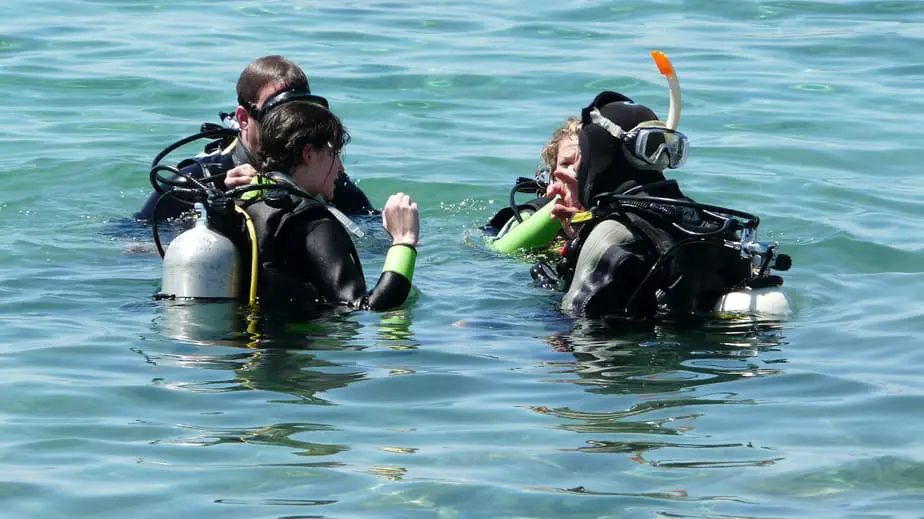
Yes, you can scuba dive without a certification if you take the introductory programs such as PADI’s Discover Scuba Diving. At this point, we’ve already talked quite a bit about the benefits of taking this taster course, so we won’t get into it anymore. But the gist is if you’re unsure about if scuba diving is for you, take this one-day course to figure it out for sure.
All of the scuba training agencies offer their version of Discover Scuba Diving. They essentially allow you to dive in a safe environment with constant supervision. Depending on the locality, they may let you take part in an open water dive.
The most popular introductory scuba courses are from PADI, NAUI, and SSI. Check your local dive center if they offer any one of:
If you take one of these courses and come to the conclusion that scuba diving isn’t for you, don’t feel like you wasted your time and money. That means these courses served their purpose and you discovered not diving is not for you. It’s much easier to find out this way rather than after you spent hundreds of dollars on the Open Water Diver course.
This is also a great way to scuba dive if you’ve never dived before and you want to do it one time before you die. That way, you don’t have to take a 4-day course, spend hundreds of dollars, and get certified just to cross an item off your bucket list.
You can also try an extremely similar alternative to scuba diving which is SNUBA diving. Essentially, instead of diving with a scuba cylinder strapped to your back, the scuba cylinder is by the surface and connected to your regulator via an extremely long hose. It’s a fun way to experience something similar to diving without worrying about carrying a bunch of bulky equipment with you.
Is there an age limit on scuba diving?
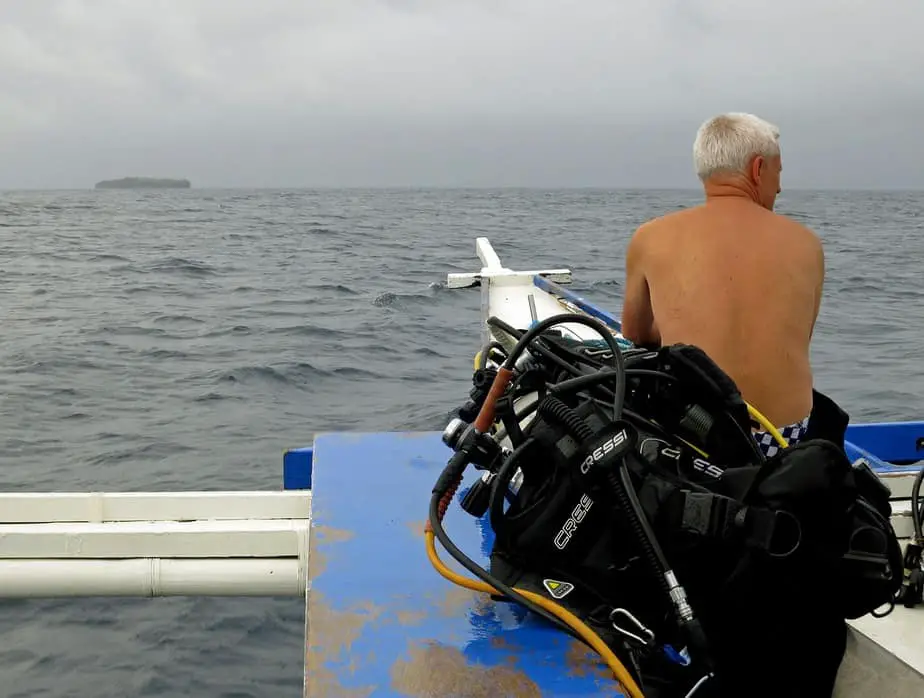
There isn’t an upper age limit on scuba diving, but there certainly is a minimum age. One’s suitability for safe diving depends on that individual’s general health and fitness level. Do you believe that, as soon as you reach a certain age, your skill level inexplicably drops and you suddenly aren’t capable of diving anymore?
Obviously that’s baloney. As long as you keep passing the medical consultations, and there have been no new developments of any health problems that can affect scuba diving, then you can keep diving year after year.
Of course, having concerns about old age is normal. Perhaps you feel that your body isn’t quite as spry as it used to be. Maybe you start to get winded faster, your joints are creaking, and your scuba kit seems heavier than it used to.
Then as a diver, you have to make a judgment call. You know your body best, so be honest. Are you sure that you can continue to safely dive at your current level? An older diver might need to limit their diving to something less extreme. Perhaps your days of drift diving are over, but you can still do other types of diving.
If you suspect that something is wrong with your body, even if you passed your last medical, you shouldn’t take any chances and go see the doctor again. It’s possible there’s been a new development that wasn’t present at the last check-up.
As long as you dive semi-regularly and keep in shape over the years, there’s no reason why you can’t maintain your skill and stamina. Perhaps the best dives of your life are still ahead of you now that you have decades of experience under your belt. Remember, age is just a number, and are you really going to let an arbitrary number define whether you can or can’t do something?
Can kids scuba dive?
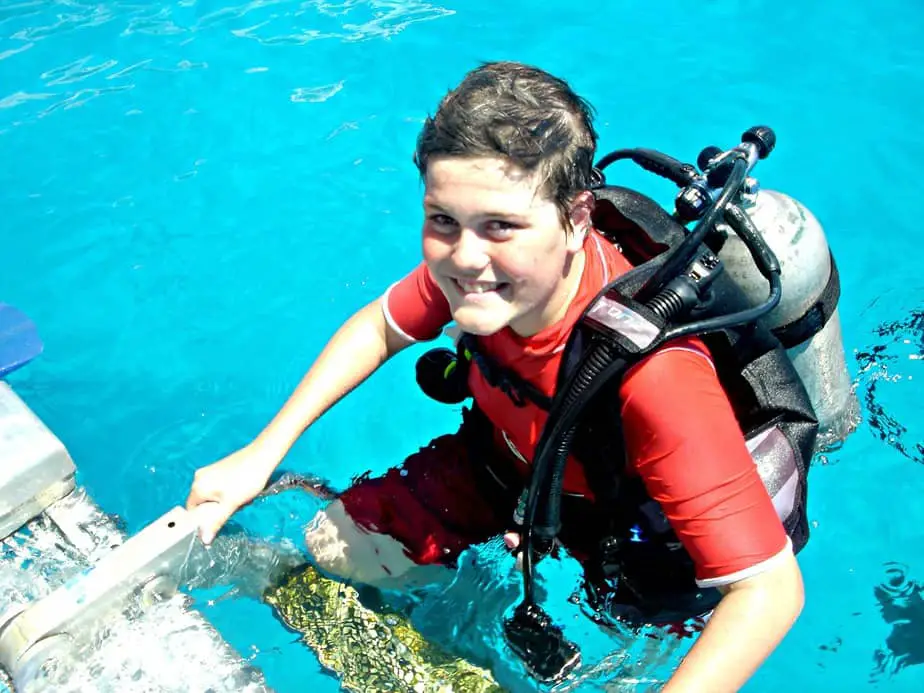
Let’s shift gears and talk about the minimum age one needs to be in order to dive. Perhaps you have kids or grandkids who are looking to start diving. They can start diving as early as 8 years old, but they cannot officially be certified until they are at least 10 years old. From the ages of 10-14, kids can earn their Junior Open Water Diver certification.
This certification has more restrictions than a standard Open Water Diver certification. First, they must always be supervised by a parent or an instructor when diving. Two, their depth limit is 12 m (40 ft) instead of 18 m (60 ft).
It’s also worth mentioning that even though their certification isn’t quite the same, they are taking the same Open Water Diver course as adults. Physically, they are clearly at a disadvantage. A child may be more energetic than an adult, however their small size may make carrying all of the scuba gear and performing the finning techniques difficult.
However, you could argue that at their young age, their brain is primed to absorb all of the dive theory, but if they’ve never taken a course like this, then they may be overwhelmed. A child or pre-teen may also not have the emotional maturity to follow the rules. Essentially, they may need to wait a few years to be in a better position to pass the Open Water Diver course.
At 15 years of age, your kids can become a full-fledged Open Water Diver. If they had a junior certification before, they can upgrade to an Open Water Diver by ordering online (PADI). They do not need to retake any courses. Upgrading their certification means their previous restrictions will be lifted, and they can now dive to 18 m (60 ft) and without parental/instructor supervision.
Can you scuba dive without training?
You can scuba dive without being certified by taking an introductory course with the caveat that an instructor is going to teach you and supervise you every step of the way. These courses are carefully designed so that you will be in a safe environment and supervised at all times. Your instructor will stop you at a certain depth, typically 30 ft (9 m) because you are not ready to dive deeper.
Without the guidance of an experienced scuba instructor, scuba diving by yourself without being certified and without supervision is extremely dangerous. While it’s not illegal, i.e., you aren’t breaking any laws diving without being certified, it is incredibly unwise and not recommended.
If an accident should occur, you will find yourself uninsured and on the hook for the medical bills. You may also be open to liability and litigation from anybody affected by any incidents that you caused diving without a license.
The video above is an example of what can happen if you try to scuba dive without adequate training. Here, the individual got off easy – he simply experienced mask squeeze because he didn’t know that he needed to equalize his mask. The reason why we say he got off “easy” is because he survived to tell the tale. Some people run out of air or lose their life due to complications from decompression sickness.
Facial barotrauma is a minor issue all things considered and is what we’d consider a good outcome. Each year, approximately 70 divers lose their lives in the United States because they were diving alone, ran out of air, or suffered a medical emergency underwater, and these divers were certified. How much more likely could an accident occur to you if you don’t have the appropriate training for it?
Can anyone buy scuba gear?
As a follow-up to the above question, how can someone even get access to scuba gear to dive with without being certified? Can anyone buy scuba gear? The answer is yes, anyone can buy scuba gear without any restrictions.
You could theoretically be purchasing scuba gear as a birthday present for a friend or family member who dives, so there are legitimate reasons why someone who isn’t certified would want to shop for scuba gear.
The only exception is when you want to purchase enriched air nitrox or trimix breathing gas, in which case you will be asked to show the relevant certifications so that the shop can log the transaction and verify the gas analysis before handing the tank over.
Other than that, you can buy that new mask, fins, or dive computer easily with no questions asked.
What medical conditions can prevent you from diving?
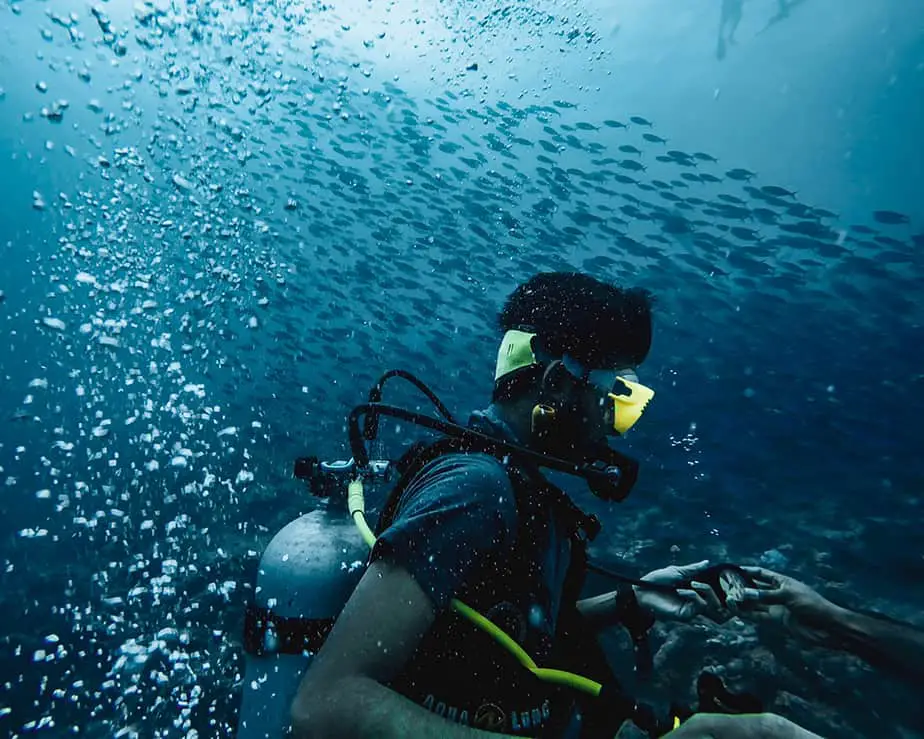
Most of the time, the obstacles stopping you from doing something can be overcome. However, medical conditions are something that can restrict you from diving and there’s probably not much you can do about it.
With that said, the diving community, training agencies, and diving doctors all want to assist you to allow as many people as possible safely scuba dive. So if you’re concerned about a pre-existing medical condition, the least you can do is at least see a specialist diving doctor to find out if you can work around your condition or not.
All new divers will undergo a health screening system for problems that may be incompatible with scuba diving. You will be asked to fill out an evaluation form which checks for medical problems that may need to be cleared by a doctor before you are allowed to dive.
The underwater environment will place a few stressors on your body, most commonly the water pressure literally squeezing you, and excess nitrogen entering your system which can potentially result in decompression sickness, among other things.
Thus, it’s important that a doctor examines you to rule out any issues before you are allowed to dive. Even if you have a medical condition, it’s possible that you can work around it with lifestyle and treatment changes, however this depends on the doctor’s discretion.
Furthermore, it’s important to keep in mind that as our body ages, our health can deteriorate, and check-ups will be more frequent (e.g. once a year). As morbid as it is, just because you were healthy years before doesn’t mean you are now. You’ll need to be checked by a doctor to determine if you’re still fit to dive.
Parting words
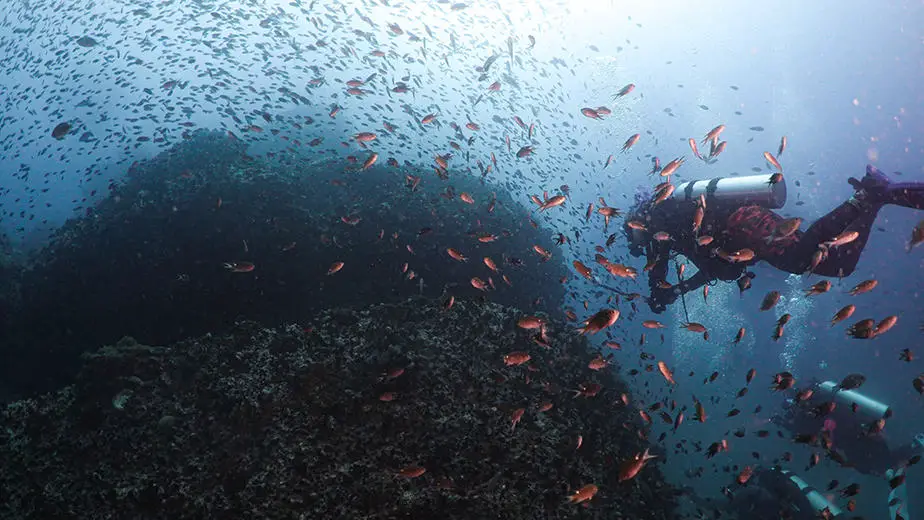
Almost anyone can scuba dive. There are so few restrictions, and there’s no upper limit on age or body weight for a diver to dive. The biggest limiting factor is if a medical condition restricts you from diving. You’ll need to get medical clearance from a doctor first, and you might be surprised at what kinds of workarounds they might have, so don’t give up on your scuba dreams just yet.
There is also a minimum age – 10 years or older if you want to get certified. Technically, children as young as 8 years old can take the Bubblemaker course to get a taste of proper scuba diving. Unfortunately, they will not receive a certification at the end of the course.
Most impediments to scuba diving can be overcome with enough patience and effort. For instance, you may be worried that you’re not a good enough swimmer, or that you’re not physically in shape, or you currently don’t have enough disposable income to take the course or buy the scuba gear, or you just get extremely nervous in the water.
These problems are valid, but unlike a medical condition, you can actually do something about it with your own efforts. You can get better at swimming by taking lessons or practicing in a pool, you can save up money to finish the scuba course while on vacation, you can improve your general health and fitness through a strict diet and training regimen, and you can overcome your nerves through practice.
If you truly want to scuba dive, barring a medical restriction, there’s no reason why you can’t. However, if you aren’t sure if scuba diving is for you, then that’s a different story. In that case, before you invest too much into scuba courses and gear, you should take the Discover Scuba Diving course first.
There’s nothing worse than investing so much time, money, and effort into scuba diving for you to come to the conclusion that it isn’t for you. Don’t do something you don’t enjoy; if you’re already invested, don’t let the sunk-cost fallacy stop you from letting your diving friends and family members know you want to stop, they’ll understand. Perhaps you should give snorkeling a shot if you want an even more laidback way of viewing the underwater world.

